
JOURNAL OF STORED PRODUCTS RESEARCH
Scope & Guideline
Unraveling the Secrets of Stored Product Science
Introduction
Aims and Scopes
- Pest Management Strategies:
The journal emphasizes research on various pest management techniques, including the use of chemical, biological, and physical methods to control insect pests in stored products. - Food Quality and Safety:
Investigations into maintaining the quality and safety of stored food products through innovative storage methods, treatments, and materials are central to the journal's scope. - Postharvest Technologies:
Research on novel technologies, including non-thermal and thermal methods, for enhancing the shelf life and quality of agricultural products during storage. - Biological Control Mechanisms:
Studies exploring the use of natural predators, parasitoids, and entomopathogenic fungi as biological control agents for managing pest populations in stored products. - Impact of Storage Conditions:
The journal addresses how various environmental factors, such as temperature and humidity, affect the quality and safety of stored products. - Modeling and Predictive Analytics:
The application of mathematical models and machine learning techniques to predict pest behavior and storage quality is a significant area of research. - Sustainable Practices:
Focus on sustainable practices in postharvest handling and storage, including the use of biodegradable materials and eco-friendly pest control methods.
Trending and Emerging
- Integrated Pest Management (IPM):
A significant trend is the increasing focus on integrated pest management approaches that combine biological, physical, and chemical methods to control pest populations sustainably. - Non-Thermal Preservation Techniques:
Research into non-thermal methods such as cold plasma treatment and modified atmospheres is on the rise, highlighting innovative ways to enhance food preservation without compromising quality. - Smart Packaging Solutions:
There is a growing interest in smart packaging technologies that monitor and control the storage environment to extend shelf life and maintain product integrity. - Machine Learning and Data Analytics:
The application of machine learning and data analytics for predicting pest behavior and optimizing storage conditions is emerging as a vital area of research. - Sustainable and Eco-Friendly Practices:
A clear trend towards sustainability is evident, with increasing research on biodegradable materials and eco-friendly pest control methods. - Mycotoxin Management:
The management of mycotoxins in stored products is increasingly prominent, reflecting a heightened awareness of food safety and public health challenges.
Declining or Waning
- Conventional Chemical Fumigation:
There is a noticeable decrease in studies focused on traditional chemical fumigants, as researchers shift towards exploring alternative and less toxic pest management solutions. - Basic Biological Studies:
Research centered on basic biological studies of stored product pests, such as life cycles and basic physiology, is becoming less frequent, possibly due to a shift towards applied and integrative approaches. - Historical Pest Management Practices:
Investigations into historical or traditional pest management practices are diminishing in favor of modern, innovative techniques that align with current sustainability goals. - Single Treatment Efficacy:
There has been a reduction in studies focusing solely on the efficacy of individual treatments, as researchers now often emphasize integrated pest management strategies. - Invasive Species Studies:
Research specifically targeting invasive species in storage conditions is waning, likely due to a broader focus on pest complex interactions and management.
Similar Journals
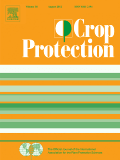
Crop Protection
Innovating pest management for a resilient future.Crop Protection is a leading academic journal in the field of Agronomy and Crop Science, published by Elsevier Science Ltd, and recognized for its high impact demonstrated by an impressive Q1 quartile ranking in 2023. With its ISSN 0261-2194 and E-ISSN 1873-6904, this esteemed publication has been a crucial source of research since its inception in 1982, continuing to provide valuable insights and advancements in crop protection strategies through 2024. The journal serves a diverse audience, including researchers, professionals, and students, eager to explore pioneering findings in pest management, herbicide development, and sustainable agricultural practices. While the journal does not offer open access options, its rigorous peer-review process ensures the highest quality of scholarly articles that contribute significantly to the agricultural and biological sciences, maintaining its respected position with a Scopus rank of #63 out of 406 in its category, placing it in the 84th percentile. Engaging with Crop Protection not only enriches knowledge but also promotes innovative solutions for global agricultural challenges.
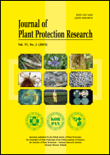
JOURNAL OF PLANT PROTECTION RESEARCH
Advancing plant health through innovative research.JOURNAL OF PLANT PROTECTION RESEARCH is a pivotal publication in the realm of agricultural sciences, dedicated to advancing our understanding of plant protection and pest management. Published by the INST OCHRONY ROSLIN, PANSTWOWY INST BADAWCZY in Poland, this journal has been an open-access venue since 2008, ensuring that research findings are readily accessible to a global audience. With an ISSN of 1427-4345 and E-ISSN of 1899-007X, it serves as a crucial platform for scholars and practitioners in the fields of Agronomy, Plant Science, and Soil Science. In the latest categorizations, it has achieved a Q3 ranking in these disciplines, reflecting its impact and significance within the scientific community. As the journal converges its scope from 2008 to 2024, it continues to address pressing issues in plant health and sustainability. Its strategic placement within the Scopus ranks offers valuable insights into agricultural and biological sciences, making it an essential read for those seeking to enhance their expertise in plant protection strategies.

Legume Research
Advancing Legume Science for a Greener FutureLegume Research, published by the AGRICULTURAL RESEARCH COMMUNICATION CENTRE in India, is an essential peer-reviewed journal focusing on advancements in the field of agronomy, crop science, soil science, and plant science. With an ISSN of 0250-5371 and operating since 2008, this journal caters to researchers, agricultural professionals, and students interested in the critical role of legumes in sustainable agriculture and food security. It ranks within the third quartile (Q3) in several prominent categories, reflecting its contribution to the agricultural and biological sciences community—ranking #279 in Agronomy and Crop Science, #113 in Soil Science, and #376 in Plant Science based on Scopus metrics. Although not open access, Legume Research remains a vital resource for those seeking to enhance their knowledge and contribute novel research findings in the ever-evolving discipline of legume cultivation and utilization. With a clear objective to disseminate impactful research, this journal significantly contributes to the global understanding of legumes' ecological, economic, and nutritional importance.

COMPREHENSIVE REVIEWS IN FOOD SCIENCE AND FOOD SAFETY
Advancing Knowledge in Food Safety and ScienceCOMPREHENSIVE REVIEWS IN FOOD SCIENCE AND FOOD SAFETY, published by Wiley, is a premier journal dedicated to advancing the understanding of food science and safety through thorough and critical reviews. With an impressive Q1 ranking in the field of Food Science and a notable Scopus ranking of #4 out of 389 in Agricultural and Biological Sciences, this journal occupies a vital position within the academic community. Its rigorous approach to publishing comprehensive reviews serves as an invaluable resource for researchers, professionals, and students aiming to stay abreast of current trends and advancements in the food sector. Although the journal does not offer open access options, its contributions from 2002 through 2024 reflect a commitment to high-quality scholarship and knowledge dissemination. Researchers looking to elevate their understanding of food safety and related disciplines will find this journal an essential addition to their academic repertoire.
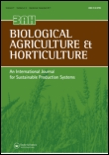
BIOLOGICAL AGRICULTURE & HORTICULTURE
Charting new territories in agronomy and horticultural sciences.Biological Agriculture & Horticulture, published by Taylor & Francis Ltd, stands as a pivotal journal in the realms of agronomy and horticultural sciences. With an ISSN of 0144-8765 and an E-ISSN of 2165-0616, this esteemed journal has been disseminating vital research since its inception in 1982 and continues to publish leading studies through 2024. It currently boasts a commendable Q2 quartile ranking in both Agronomy and Crop Science as well as Horticulture, placing it in a prominent position within the academic community. With Scopus rankings indicating a 70th percentile in Horticulture and a 62nd percentile in Agronomy and Crop Science, the journal is a key resource for researchers, professionals, and students focused on innovative practices and scientific advancements in biological agriculture. While the journal is not open access, it remains an invaluable repository for cutting-edge research, methodologies, and reviews that push the boundaries of agricultural and horticultural sciences.

Revista Caatinga
Where Agricultural Science Meets Global ImpactRevista Caatinga is a premier open-access journal published by Universidade Federal Rural do Semi-Árido (UFERSA), dedicated to the dissemination of significant research within the field of Agricultural and Biological Sciences. Since its inception in 2006, the journal has aimed to bridge the knowledge gap in various aspects of agricultural practices and biological phenomena, making vital contributions to the scientific community. With its publications indexed in Scopus and holding an impressive Q2 categorization in the competitive landscape of agricultural sciences, the journal ranks within the top half of its category (100/221), demonstrating a commitment to quality scholarship. The journal is based in Brazil and covers a wide array of topics relevant to both local and global agricultural challenges. By fostering open access, Revista Caatinga ensures that vital research is available to a broad audience, promoting knowledge sharing and collaboration among researchers, practitioners, and students around the world.
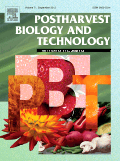
POSTHARVEST BIOLOGY AND TECHNOLOGY
Unlocking the Secrets of Postharvest ExcellencePOSTHARVEST BIOLOGY AND TECHNOLOGY is a leading journal published by Elsevier, focusing on groundbreaking research in the fields of Agronomy, Food Science, and Horticulture. With an impressive impact factor and quartile rankings of Q1 in 2023 across all three disciplines, it is recognized for its significant contributions to enhancing postharvest processes and technologies. The journal offers a platform for multidisciplinary exchange, welcoming studies that explore innovative methods to improve food quality, shelf life, and safety. Researchers and practitioners alike will find valuable insights in its extensive archives, which encompass studies from 1991 to 2024. While it is not an open-access journal, subscribers gain exclusive access to high-impact articles and critical reviews that facilitate advancements in the sector. Based in the Netherlands, at Radarweg 29, Amsterdam, this esteemed publication is essential for professionals who aim to stay at the forefront of postharvest biology and technology.

PHILIPPINE AGRICULTURAL SCIENTIST
Cultivating Knowledge, Nurturing Innovation.PHILIPPINE AGRICULTURAL SCIENTIST is a pioneering journal published by the University of the Philippines Los Baños, dedicated to advancing the fields of Agronomy, Crop Science, Animal Science, and Biotechnology. With an ISSN of 0031-7454, this esteemed journal provides a vital platform for researchers and practitioners focusing on agricultural innovations and practices in the Philippines and beyond. With a robust history dating back to 1996 and continuing through 2024, the journal operates within the Q4 quartile, reflecting its potential for growth and impactful contributions in its categories. Despite currently being positioned in the lower ranks, it serves as an essential publishing venue for nascent studies and localized research, contributing to the agricultural discourse. The journal fosters a collaborative research environment, encouraging submissions from both emerging scholars and seasoned experts, making it a valuable resource for students, professionals, and researchers engaged in the agricultural sciences. While it currently does not offer open access, it plays a crucial role in disseminating vital knowledge aimed at enhancing agricultural practices in the region.
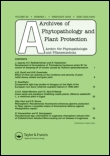
ARCHIVES OF PHYTOPATHOLOGY AND PLANT PROTECTION
Fostering Collaboration for a Healthier Plant FutureArchives of Phytopathology and Plant Protection, published by Taylor & Francis Ltd, stands as a pivotal platform in the field of agronomy and crop science since its inception in 1974. With an ISSN of 0323-5408 and E-ISSN of 1477-2906, this journal is dedicated to publishing high-quality, peer-reviewed research that addresses contemporary challenges in plant pathology and protection. As a Q3 ranked journal in its category with Scopus Rank #210/406, it serves a vital role in disseminating practical solutions and innovative discoveries to enhance agricultural productivity and sustainability. The journal fosters a rich exchange of ideas among researchers, professionals, and students, empowering them to contribute to the advancement of the agronomy and biological sciences. Despite being traditionally subscription-based, the journal's commitment to comprehensive and rigorous research makes it an essential resource for anyone invested in the future of plant health and agricultural innovation.
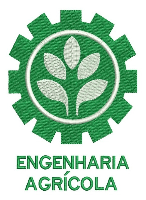
Engenharia Agricola
Innovating for efficiency in agriculture and beyond.Engenharia Agricola, published by the SOC BRASIL ENGENHARIA AGRICOLA, is a crucial open-access journal that has been at the forefront of agricultural engineering research since its inception in 1981. With an E-ISSN of 1809-4430 and an ISSN of 0100-6916, this journal stands out in the field by providing a platform for disseminating innovative studies and advancements in agricultural practices and technologies. Based in Brazil, the journal emphasizes global perspectives in agricultural and biological sciences, currently positioned in the Q3 quartile of its category, as recognized in the 2023 Scopus Ranks, where it ranks 97 out of 193 publications. Researchers, professionals, and students can access a plethora of high-quality articles that contribute to sustainable agronomy, agricultural mechanics, and resource efficiency across various environments, with open access since 2004, ensuring that critical knowledge is readily available to all stakeholders in the field.